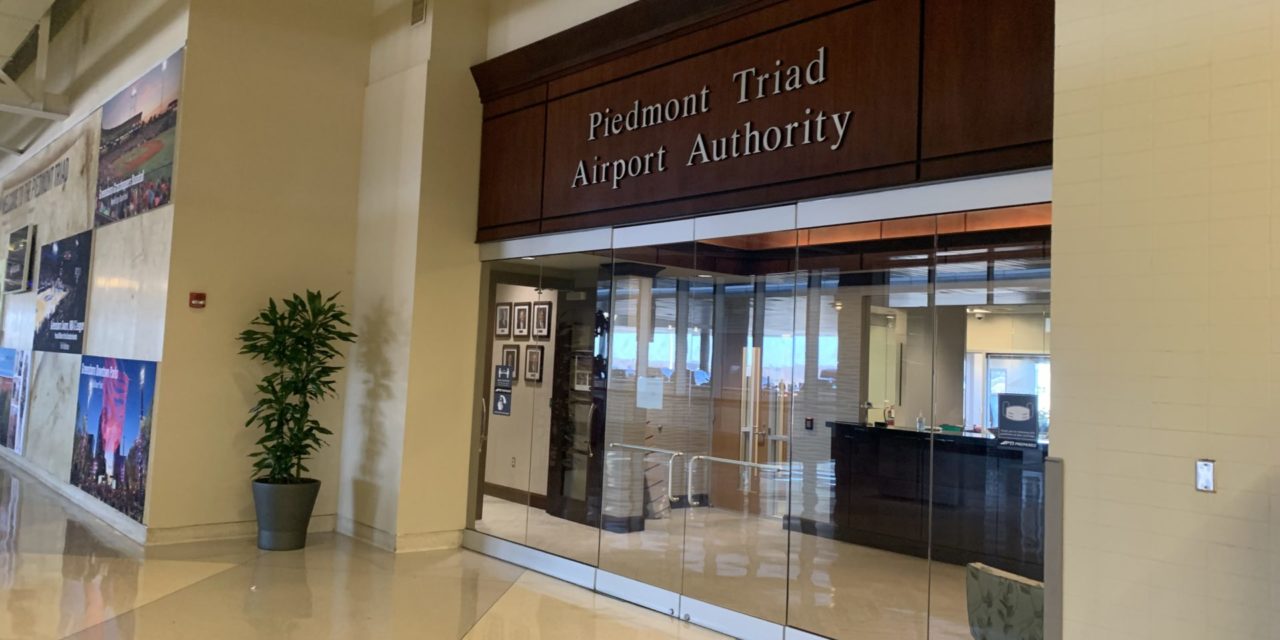The Piedmont Triad Airport Authority – the board that oversees Piedmont Triad International Airport (PTIA) came close to having a member vote “No” on something for perhaps the first time in modern history.
The matter under discussion, at a recent Airport Authority meeting, was whether the board should begin to hold its meetings in-person again, or should continue meeting virtually over Zoom as it has done since the COVID-19 pandemic began.
The Airport Authority, which consists of seven members chosen by area local governments, has an interesting characteristic: No one can ever remember any member of the board ever voting no on anything. Apparently, in this century at least, amazingly, the board has always been in total agreement on every agenda item that’s ever came before it.
However, when the board met in late February to decide whether to hold future meetings in person or virtually, the initial discussion revealed a big problem. Some members wanted to return to meeting in the medium-sized conference room at PTIA, while others still weren’t comfortable doing so.
“How do you guys feel about returning to the regular meetings?” Chairman Paul Mengert asked at the start of the discussion.
One member made the argument that society was always on the verge of conquering the virus, but then people drop their guards and COVID-19 flares back up again. He suggested holding off another couple of months on in-person meetings.
Mengert said, “I understand what you’re saying, and the reason I hesitated a little bit to bring it up, is because, the last time we decided to bring it back to in-person meetings, before we even got there, bad things started to happen again, so I don’t want to jinx it at all.”
Others were “indifferent,” but there was no question some wanted to keep the meetings virtual and others wanted in-person meetings.
For a moment, it looked like the board might have a split vote on something for the very first time.
But then the members came up with a solution. They split the baby. The Airport Authority decided to use a “hybrid model” where a member could come to an in-person meeting if he or she so chose, but members also had the option of participating virtually.
All members voted to approve and the crisis was averted.


Whew, that was a close one!! Can they now get to work on lower air fares so I don’t have to go to Raleigh?
Well, you could “jinx it” by bringing 13 black cats to the meeting. What a bunch of wimpo-wusses.
Another “crisis”, or an example of the Rule of the Committee. That is, you whiz-bang around and come to something “indifferent”, so everyone can go home dissatisfied. Or something like that.
Maybe this crisis can be put down by everyone having to wear a nose clip in order to protect everyone from the smell of rotten malfeasance, disfeasance, or nofeasance.
Do people actually get paid for this stuff?
Frankly there is something wrong with a Board that has never had a disagreement, or they are discussing all issues in advance of the actual meetings to reach a consensuses. Surely having some strong thinkers who not afraid to voice their concerns or objections is not a sign of problems, but rather a sign that the Board has people with ideas and the fortitude to express them.
Oh dear! This is serious!-lol